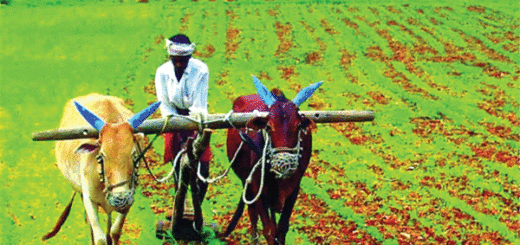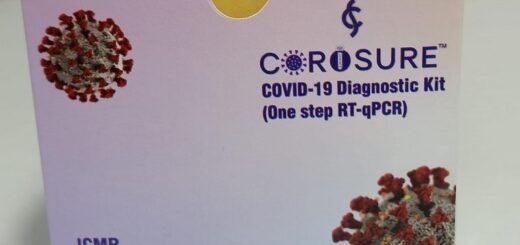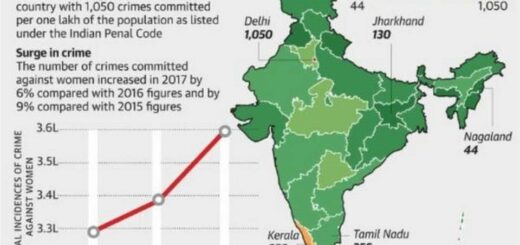National Current Affairs – UPSC/IAS Exams- 27th June 2019
United Nations Security Council
Topic: Important International institutions
In News: India has won the unanimous support of all countries in the 55-member Asia-Pacific Group at the United Nations in support of its bid for a non-permanent seat at the UN Security Council (UNSC) for a two-year term in 2021-22.
More on the Topic:
- The development is particularly significant given that Pakistan and China, both countries with which India has had diplomatic challenges at the UN, supported the move.
- The 55-member Asia-Pacific Group gets to nominate one of its members for the June 2020 elections to a non-permanent seat on the UNSC. Estonia, Niger, Tunisia, Vietnam and St. Vincent and the Grenadines were elected earlier this month.
- No challenges to India’s candidacy are expected with regard to acquiring the support of other UN members. India will need the vote of two-thirds of the 193 UN General Assembly members to win a non-permanent seat on the UNSC.
Background:
- India has already held a non-permanent seat on the UNSC for seven terms: 1950-1951, 1967-1968, 1972-1973, 1977-1978, 1984-1985, 1991-1992 and 2011-2012.
- It announced its candidacy for the 2021-22 seat at the end of 2013, with Afghanistan, a potential contender, withdrawing its nomination to accommodate India’s candidacy based on the “long-standing, close and friendly relations” between the two countries.
- India has been keen to hold the seat in 2021-22 to coincide with the 75th anniversary of Independence in 2022.
About UN Security Council:
- The United Nations Security Council (UNSC) is one of the organs of the United Nations and is charged with the maintenance of international peace and security.
- Its powers include the establishment of peacekeeping operations, the establishment of international sanctions, and the authorization of military action through Security Council resolutions; it is the only UN body with the authority to issue binding resolutions to member states.
- The Security Council consists of fifteen members. Russia, the United Kingdom, France, China, and the United States serve as the body’s five permanent members. These permanent members can veto any substantive Security Council resolution, including those on the admission of new member states or candidates for Secretary-General.
- The Security Council also has 10 non-permanent members, elected on a regional basis to serve two-year terms. The body’s presidency rotates monthly among its members.
Source: The Hindu
Fall Army Worm
Topic: Environment and Ecology
In News: The Fall Army Worm (FAW), a pest found to attack maize and other crops, had spread to 14 States in the country till May this year.
More on the Topic:
- The new States where the FAW infestation is wreaking havoc are those from the North-eastern region. While two major States which the infestation had a major impact on last year Karnataka and Telangana have so far remained free of the pest, the attack seems to be rampant in Nagaland, Manipur and Mizoram.
- A high-power committee has been formed with the agriculture secretary and department of agriculture research and extension secretary as heads to review the status and recommend appropriate strategies.
- The Indian Council of Agriculture Research has prepared a detailed Package of Practices (POP) against the pest in the Maize crop. Among other things, it contains mechanical, cultural, biological and chemical measures to control FAW.
About Fall Army Worm:
- A native of the tropical and sub-tropical regions of the Americas, FAW was first detected in the African continent in 2016. Since then, it has spread to other countries such as China, Thailand, Malaysia and Sri Lanka.
- It was reported in India for the first-time last year, when it affected crops in Karnataka. Within a span of only six months, almost 50 per cent of the country, including Mizoram, Maharashtra, Karnataka, Tamil Nadu, Andhra Pradesh, Chhattisgarh, Madhya Pradesh, Gujarat and West Bengal, has reported FAW infestations.
- FAW can attack multiple crops. It can spread across large tracts of land as it can fly over large distances. This explains the quick spread of the pest across India.
- FAW infestation and drought has led to a shortfall of nearly 5 lakh tonnes in output, prompting the central government to allow import of maize under concessional duty. Maize is the third most important cereal crop grown in the country and the infestation, if not checked in time, can wreck havoc.
Source: The Hindu
Indigenous GPS
Topic: Science and Technology
In News: ISRO has completed all the necessary preparations with regard to establishment of Space Segment (currently Eight IRNSS satellites are in orbit) and Ground Segment (spread across India). The Seven satellites in the system are providing Positioning, Navigation and Timing (PNT) services and one satellite (IRNSS-1A) is providing messaging services.
More on the topic:
- India’s own regional navigation satellite system named as “Navigation with Indian Constellation (NavIC)” is established by ISRO and is functional from April 2018 onwards.
- The potential of this indigenous system is being demonstrated in various application sectors viz. vehicle tracking system, mobiles, timing & power synchronization, fisheries, surveying etc. For example, all commercial vehicles registered from 1st April 2019 onwards are mandated to have vehicle trackers, which are also NavIC-enabled.
- More than 30 companies are manufacturing Automotive Research Association of India (ARAI) or International Centre for Automotive Technology (ICAT) approved NavIC-enabled vehicle trackers in India.
- IRNSS will free India from foreign dependency as access to foreign government-controlled global navigation satellite systems is not guaranteed in hostile situations, as happened to the Indian military in 1999 when it was dependent on the American Global Positioning System (GPS) during the Kargil War.
Source: The Hindu
Beekeeping Development Committee
Topic: Government Initiatives
In News: The Economic Advisory Council to the Prime Minister set up a Beekeeping Development Committee under the Chairmanship of Professor Bibek Debroy. The Beekeeping Development Committee (BDC) has released its report.
More on the Topic:
- BDC was constituted with the objective of identifying ways of advancing beekeeping in India, that can help in improving agricultural productivity, enhancing employment generation, augmenting nutritional security and sustaining biodiversity.
- Further, beekeeping can be an important contributor in achieving the 2022 target of doubling farmer incomes.
- India’s recent efforts to improve the state of beekeeping have helped increase the volume of honey exports from 29.6 to 51.5 thousand tonnes between 2014-15 and 2017-18 (as per data from National Bee Board and Ministry of Agriculture & Farmers’ Welfare).
- However, challenges persist and a lot more can be done to enhance the scope and scale of beekeeping.
Some of the recommendations in the report include:
- Recognizing honeybees as inputs to agriculture and considering landless Beekeepers as farmers.
- Plantation of bee friendly flora at appropriate places and engaging women self-help groups in managing such plantations.
- Institutionalizing the National Bee Board and rechristening it as the Honey and Pollinators Board of India under the Ministry of Agriculture and Farmers’ Welfare. Such a body would engage in advancing beekeeping through multiple mechanisms such as setting up of new Integrated Bee Development Centres, strengthening the existing ones, creating a honey price stabilization fund and collection of data on important aspects of apiculture.
- Recognition of apiculture as a subject for advanced research under the aegis of Indian Council for Agricultural Research.
- Training and development of beekeepers by state governments.
- Development of national and regional infrastructure for storage, processing and marketing of honey and other bee products.
- Simplifying procedures and specifying clear standards for ease of exporting honey and other bee products.
Model Mains Question: Crop diversification is an important way-out for doubling farmers’ income. Comment
Source: The Hindu
National Organ Transplant Programme (NOTP)
Topic: Government Policies
In News: To improve access to the transplantation for needy patients by promoting deceased organ donation,the Government has put in place National Organ Transplant Programme (NOTP).
More on the Topic:
- Under this programme, an apex level National Organ and Tissue Transplant Organisation (NOTTO) at New Delhi and Five Regional Organ and Tissue Transplant Organizations (ROTTOs) at Chandigarh, Mumbai, Chennai, Kolkata and Guwahati have been set up.
- The Government has released funds to establish State Organ and Tissue Transplant Organizations (SOTTOs) in the States of Madhya Pradesh, Kerala, Rajasthan, Haryana, Goa, Jammu & Kashmir, Odisha and Uttar Pradesh to organize an efficient mechanism for organ and tissue procurement/retrieval to promote deceased organ and tissue donation.
Objectives of National Organ Transplant Programme:
- To organize a system of organ and Tissue procurement & distribution for transplantation.
- To promote deceased organ and Tissue donation.
- To train required manpower.
- To protect vulnerable poor from organ trafficking.
- To monitor organ and tissue transplant services and bring about policy and programme corrections/ changes whenever needed.
About NOTTO-National Organ and Tissue Transplant Organization:
- National Network division of NOTTO would function as apex centre for all India activities of coordination and networking for procurement and distribution of organs and tissues and registry of Organs and Tissues Donation and Transplantation in country.
Source: The Hindu
Polavaram multipurpose project
Topic: Infrastructure development
In News: A In a major decision, the Union Environment Ministry has given two years of extension and allowed the construction works related to Polavaram Multipurpose Project.
More on the Topic:
- Polavaram irrigation project is a multipurpose irrigation project across Godavari river in West Godavari district with its reservoirs spreading across states of Chhattisgarh and Orissa as well. It is a national project which implies that its implementation is monitored by the Central Water Commission.
- The project endeavours to develop irrigation, drinking water facilities and hydropower to regions of East Godavari, Vishakhapatnam, Krishna and West Godavari districts of Andhra Pradesh.
- It was conceived under the National River Interlinking project proposed during the colonial period, in the 19th century by Sir Arthur Cotton. It was also endorsed by Dr. K.L Rao who in 1970, who was the irrigation minister as a part of the National Water Grid .
- It was also recommended by the Godavari Water Disputes Tribunal, which in 1980 finalized its award after which states of AP, Chhattisgarh and Odisha signed an agreement to begin construction on the project. Foundations of the project were laid in 1980 but work on it soon got stalled and could resume only in 2004. In 2014, it was declared a national project.
Source: The Hindu
Bimal Jalan Committee
Topic: Economy
In News:The Bimal Jalan committee, tasked with reviewing the economic capital framework of the Reserve Bank of India (RBI), has deferred the submission of its report to the central bank for the third time. The panel will meet again in mid-July, after the presentation of the Union Budget.
More on the Topic:
- The committee was constituted to suggest appropriate reserves that RBI should maintain and dividends it should pay to the government.
- Its mandate was to review global best practices followed by the central banks in making assessment and provisions.
- Most of the committee members favours reducing the RBI’s excess reserves in a phased manner, without any substantial transfer to the government.
- The majority of the members also favors the past reserves of the RBI, especially unrealized gains, in gold and currency revaluation accounts, should not be touched, while future transfers should be guided by the new policy.
- Government nominee on the Committee has expressed differences on key recommendations of the panel.
- As per Section 47 of the RBI Act, profits of the RBI are to be transferred to the government, after making various contingency provisions.
- The Finance Ministry had internally estimated RBI’s excess reserves at Rs 3.6 lakh crore.
- For the year ending June 2018, RBI had total reserves of Rs 9.59 lakh crore, comprising mainly currency and gold revaluation account (Rs 6.91 lakh crore) and contingency fund (Rs 2.32 lakh crore).
- If the committee recommends a significant chunk of past excess reserves that can be transferred to the government, it will put the Centre into a much better fiscal situation.
- It will also enable government to deploy the money for capitalizing the public sector banks and to support economic growth.
- At the same time, RBI needs adequate capital reserves for monetary policy operations, currency fluctuations, possible fall in the value of bonds and other risks from an increase in its expenditure
Source: Indian Express





















